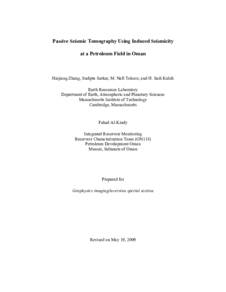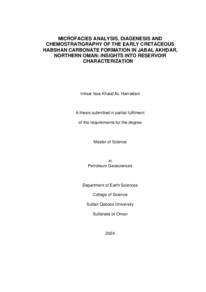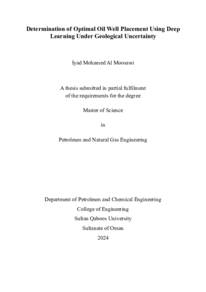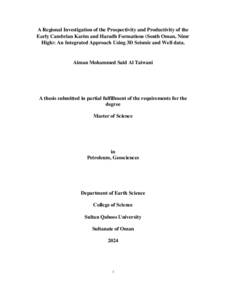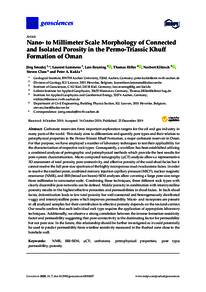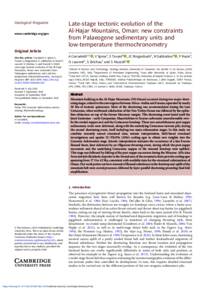وثيقة
Passive seismic tomography using induced seismicity at a petroleum field in Oman.
المعرف
DOI: 10.1190/1.3253059
المساهمون
الناشر
Society of Exploration Geophysicists.
ميلادي
2009-04
اللغة
الأنجليزية
الملخص الإنجليزي
A borehole network consisting of 5 monitoring wells was used to monitor the induced
seismicity at a producing petroleum field for a period of about 11 months. Nearly 5400
microseismic events were analyzed and utilized in imaging the reservoir based on a new doubledifference (DD) seismic tomography. The DD tomography method simultaneously solves for
event locations and Vp, Vs, and Vp/Vs models using absolute and differential P, S and S-P
arrival times. Microseismicity in the field was primarily caused by compaction of the reservoir in
and above the gas bearing formation and was distributed along the two major northeastsouthwest (NE-SW) faults in the field. The model resolution analysis based on the checkerboard
test and the resolution matrix showed that the central part of the model was relatively well
resolved for the depth range of 0.7 to 1.1 km. Clear velocity contrasts were imaged across most
parts of the two NE-SW faults. Vp/Vs ratio estimations from the tomographic inversion were
low (<1.75) in the shallow depth range, likely due to lithology and gas content, whereas they
were large (>1.75) in the deeper part of the model, likely due to fluid saturated formation. In this
study seismic tomography showed a great potential for reservoir imaging and property estimation
using induced seismicity
المجموعة
ISSN
0016-8033
URL المصدر
قالب العنصر
مقالات الدوريات

